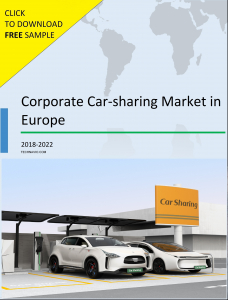BMW’s move to acquire DriveNow is the latest testament to the importance of car-sharing in molding the future of mobility. While the corporate sectors grapple for an answer to the question of intelligent transport, car-sharing could prove to be the simple yet elegant solution to the transportation challenges of the 21st century. Especially, in the business sectors, corporate car-sharing can additionally help save costs.
Corporate car-sharing poised as responsible mobility for companies
Currently, more than a billion vehicles are on the road at any given time, and according to the United Nations, this number will triple by 2050. Therefore, the most pressing need is to establish practical solutions that are not only cost-effective, but also environmentally friendly. It is in this context that corporate car-sharing has gained popularity around the globe.
Also known as business car sharing, corporate car-sharing helps companies eliminate or reduce the dependency on private vehicle fleets. In fact, commercial businesses, regardless of their size, see this option as an important tool to manage their transportation requirements. Through carpooling, corporations can potentially reduce their carbon footprints, reduce parking demands, and most of all, improve the quality of life for their employees. Thus, corporate car-sharing is one of the most sustainable transportation strategies for employers in both private and government sectors.
Read: Urban Mobility Revolution Has Just Begun!
Top-3 reasons why corporate car-sharing is good for your company
1. Flexibility for employees
Corporate carpooling services provide access to a large number of vehicles. The flexibility of booking vehicles as and when needed has made these services a major hit among employees. From the fleet manager’s point of view, this is an opportunity to streamline the operations of their fleet and make optimal use of every vehicle.
2. Reduces fleet management costs
By reducing the total cost of mobility by up to 30%, corporate car-sharing enables companies to save more. As most of the vehicles are deployed with maximum rotation, not only do companies save on parking slots, but they also gain precious insights on vehicle usage patterns.
3. Less traffic on the roads
Stress from heavy traffic is a major contributor to health issues like migraines. With a single shared vehicle replacing up to 15 vehicles on the roads, corporate carpooling is sure to help reduce congestion. It is also perhaps one of the easiest ways to reduce automotive carbon emissions, while at the same time helping the company fulfill its corporate social responsibility.
Read: Smart and Safe Connected Cars with Embedded Telematic Solutions
A brief look at the car-sharing landscape in Europe
 Europe accounts for around 50% of the global car-sharing market, therefore it will be interesting to understand how this mobility strategy benefits this region.
Europe accounts for around 50% of the global car-sharing market, therefore it will be interesting to understand how this mobility strategy benefits this region.
For instance, Germany is the largest car sharing market in Europe, with more than 1.5 million users and close to 200 service providers in the country. The fact that there are strict regulations in the taxi industry is a major driver for the growing demand for car-pooling services. In Scandinavian countries, factors like openness to new ideas, environmental consciousness, and innovation are the prime factors for the popularity of this innovative mobility solution.
When it comes to the providers of car sharing services, DriveNow, Car2go, and Flinkster are the big names driving the mobility revolution. With greater adoption of smartphones and IoT, it is expected that in time, the demand for car-sharing services will continue to increase globally.



